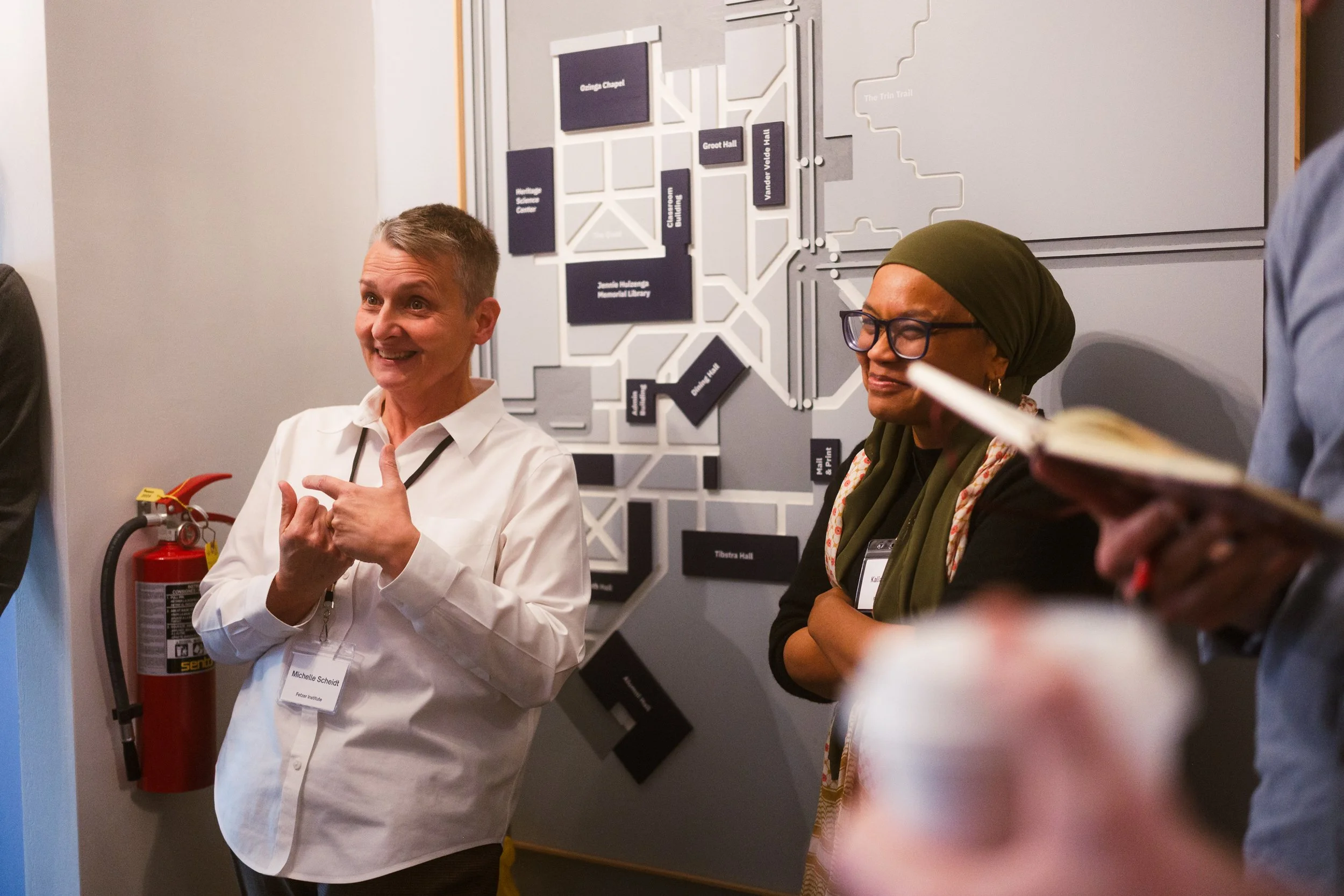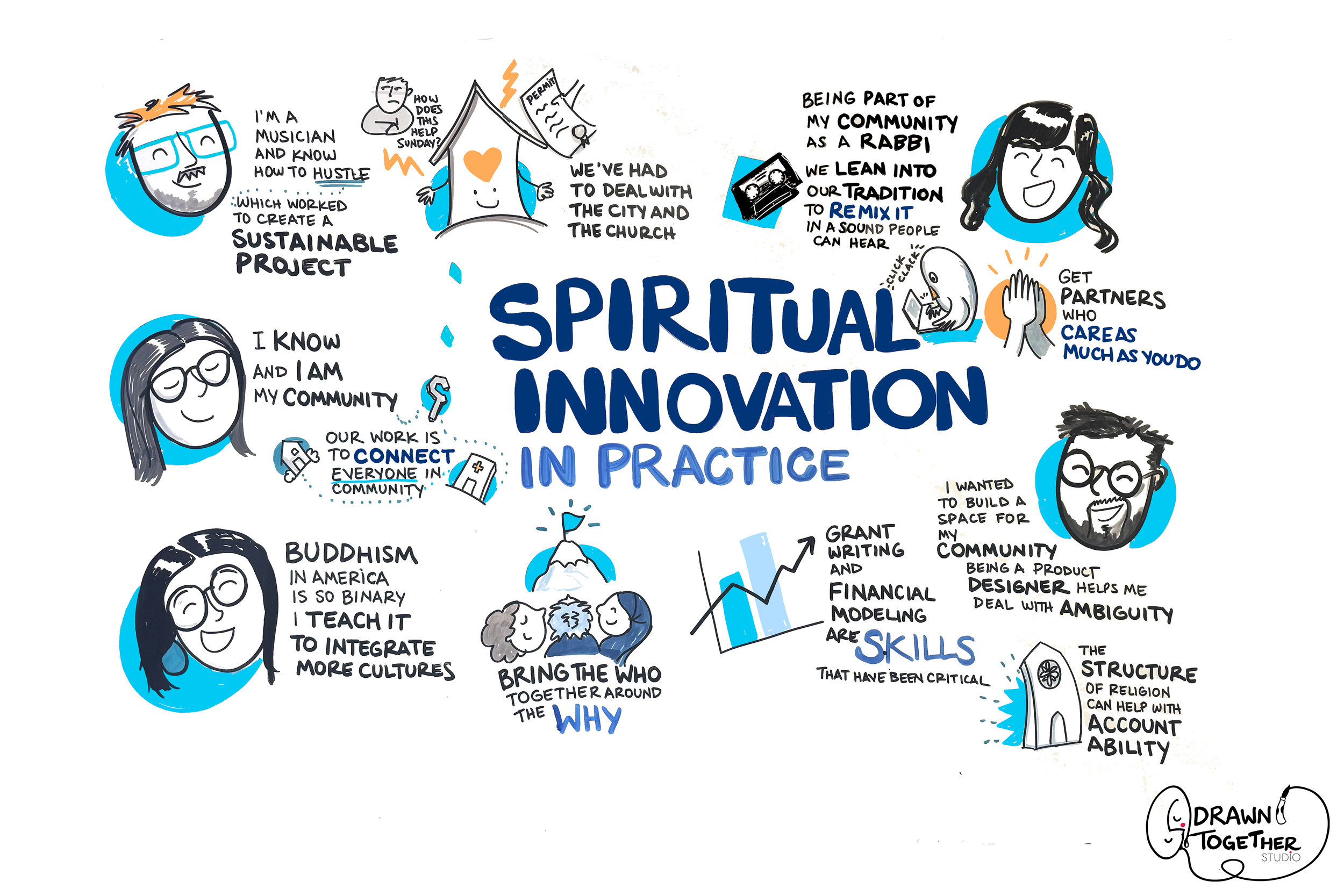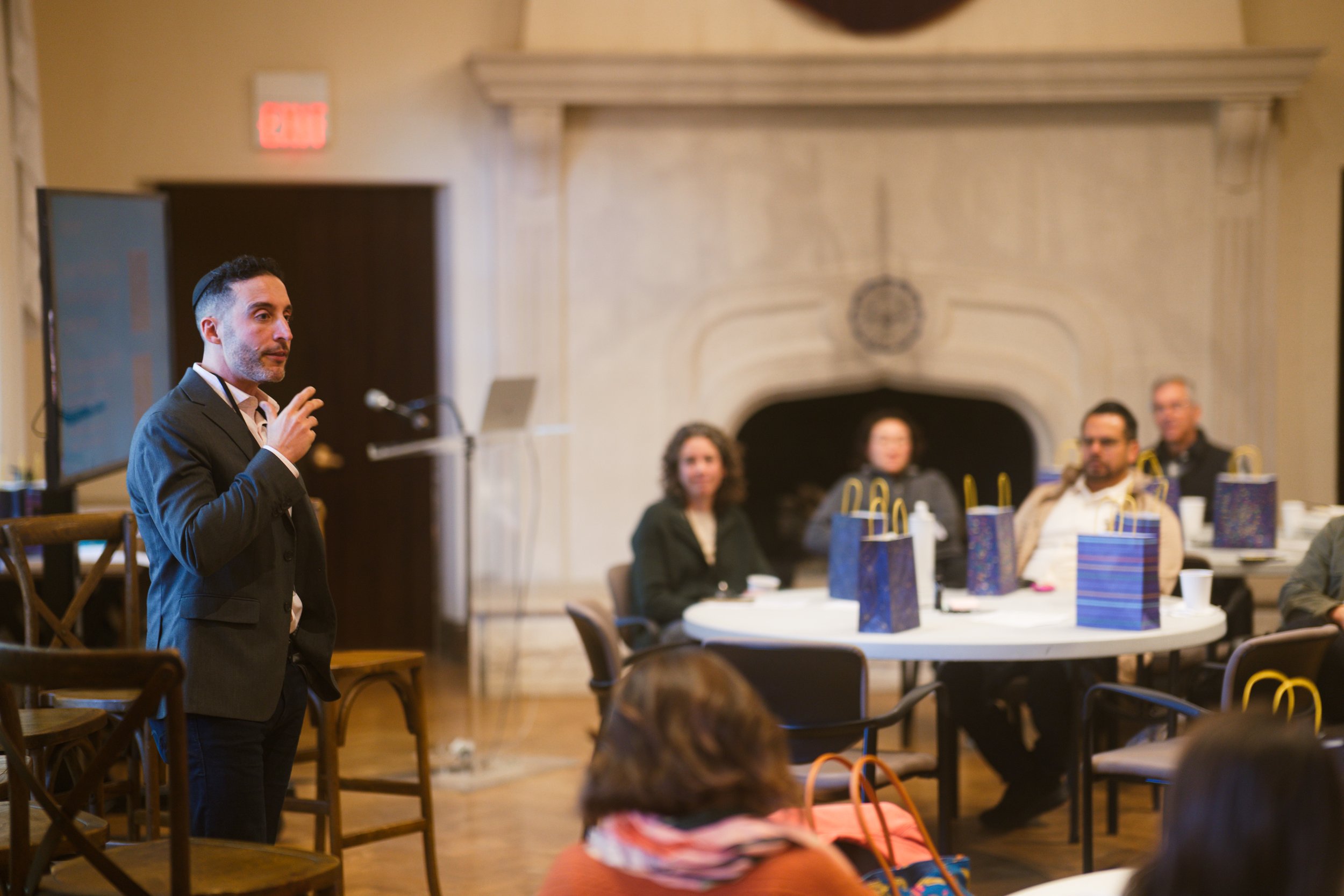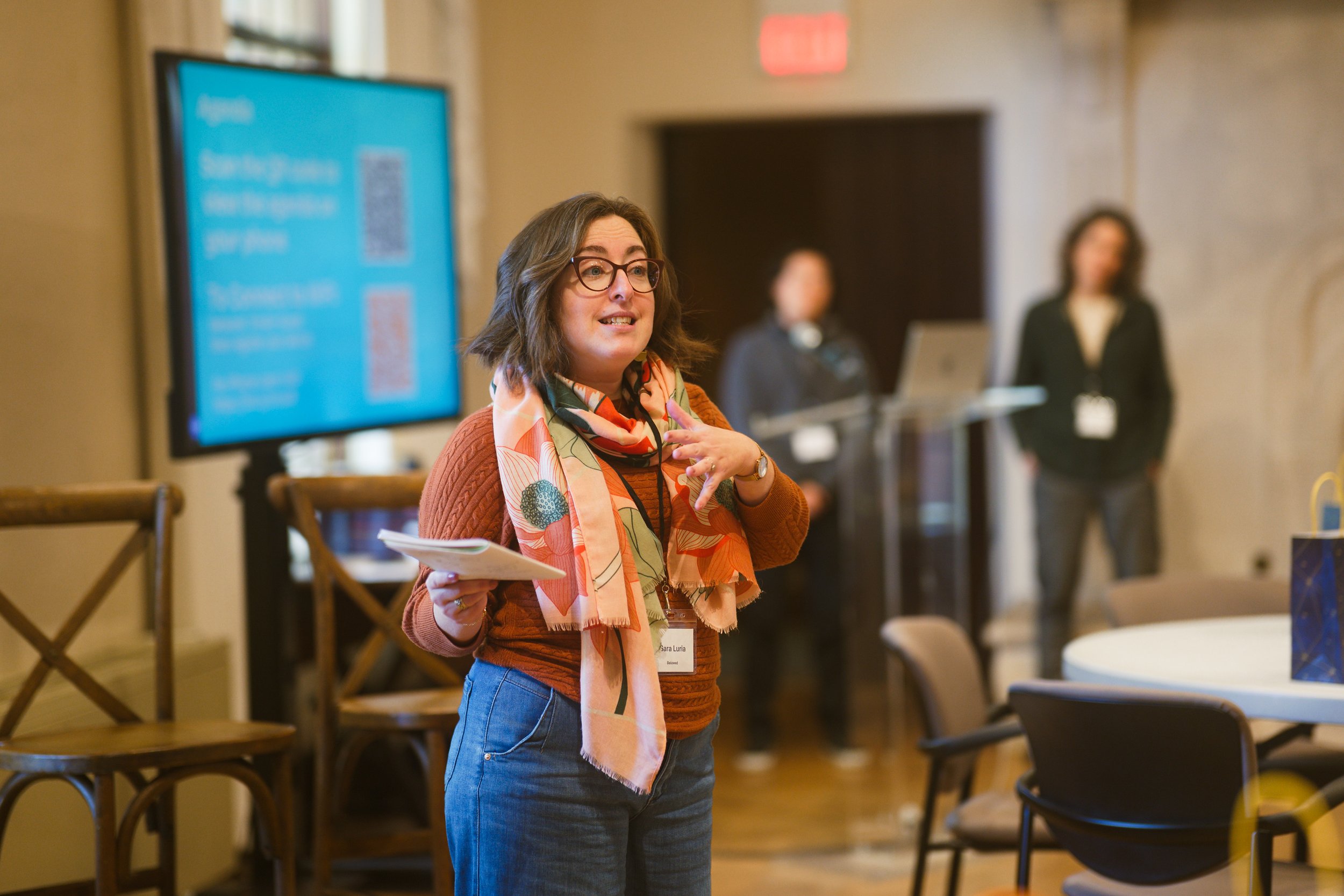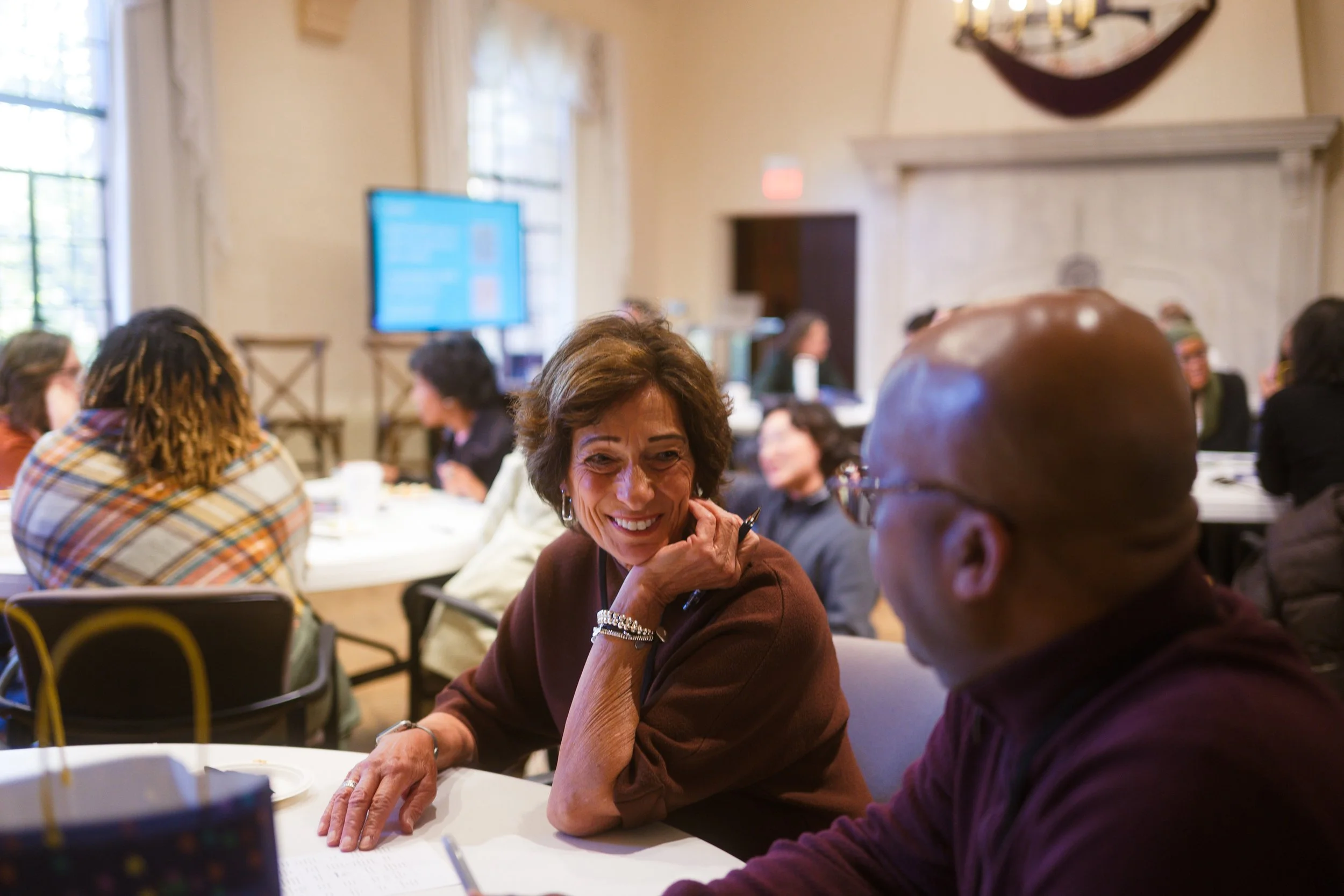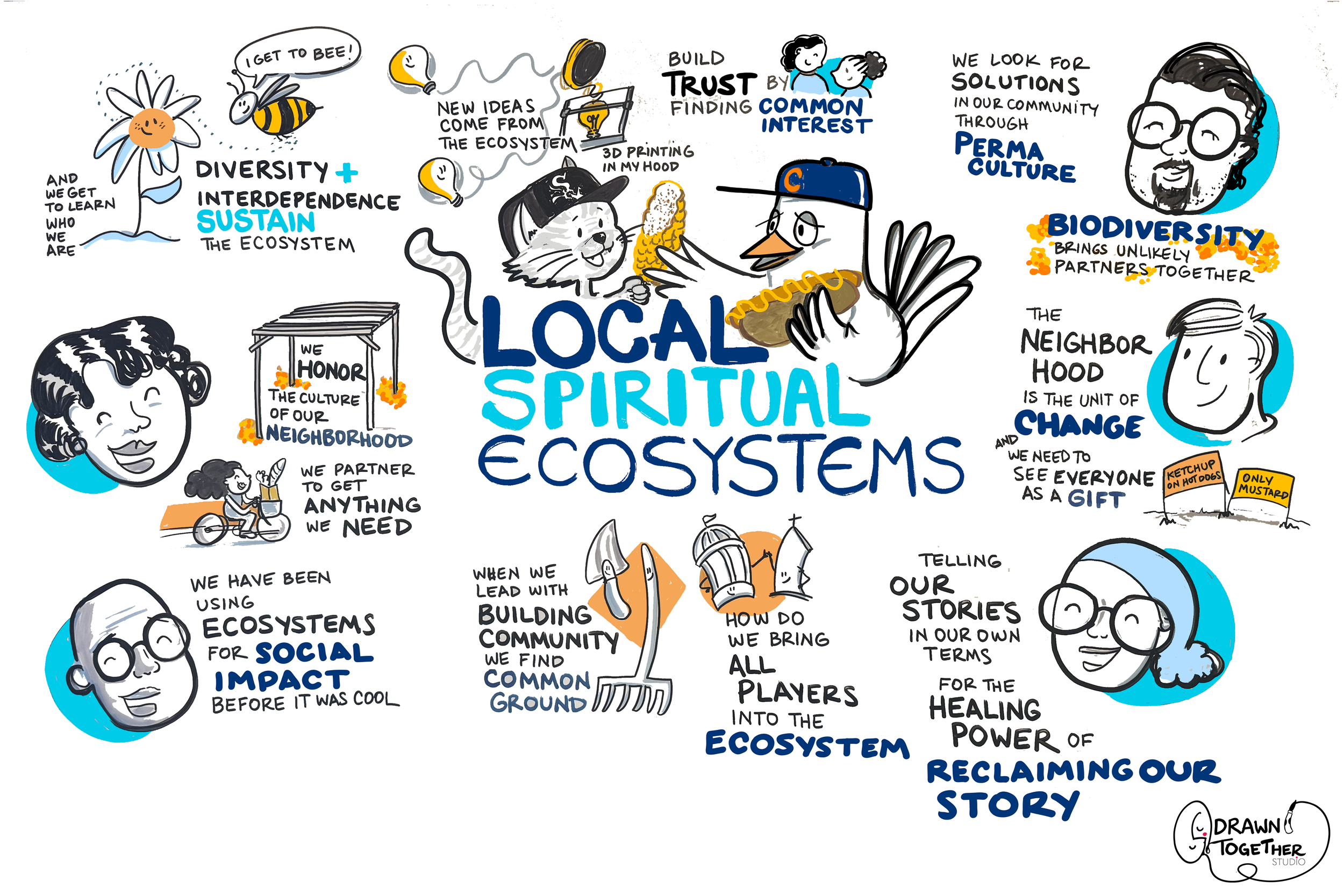Insights for Change: The potential of spiritual innovation to revitalize faith and communities
In October, innoFaith co-hosted a conversation in Chicago on spiritual innovation and local spiritual ecosystems. This conversation emerged from a national Mapping Spiritual Innovation project that we've collaborated on over the past year with Glean Network, Chaplaincy Innovation Lab, and Faith Matters Network.
Earlier this year, Chaplaincy Innovation Lab released the initial findings of the research from the project, which offers glimpses into the emerging field of spiritual innovation, defined in this research as groups inspired by the world's religious traditions to create social change, often by disrupting traditional delivery systems or translating those traditions in new ways.
The research and our conversations with spiritual innovators have pushed us to ask not only about the role of the innovators but also that of legacy religious institutions in the midst of this shifting landscape. We are inspired by the different ways people and institutions nurture spiritual and religious life and how, out of that commitment, they create positive social change. We see enormous potential for the revitalization of faith and spirituality, in both old and new ways, as well as the thriving of communities, if we can nurture and connect the roles that these different actors play.
In Chicago, we gathered a multi-faith, cross-stakeholder group of innovators, educators, religious leaders, and field-builders to discuss the findings of the research and where it may be pointing us. We had discussions about what spiritual innovation needs and how it might change how we think about the broader religious and spiritual landscape. We also discussed the potential of local spiritual ecosystems where institutions and innovators see themselves as interconnected players in pursuit of thriving communities, and thought through some of the challenges and opportunities for nurturing these ecosystems.
Here is some of what we learned:
Spiritual innovation needs support. Innovators often feel alone and can struggle to turn promising innovation into sustainable social value. They need networks, funding channels, business development support, and spiritual and emotional support.
We need creative field-building mechanisms to provide these supports. But we also should beware the landmines on the path to professionalization of the field. Field-building should be a multiplier, not a layer that pulls resources that could otherwise go to innovation on the ground in communities.
Innovators and institutions both have their own work to do in reconsidering "legacy," and it's not without tensions. The stability of institutions is an asset, yet the forever timeline can squash mission and innovation. The vision of innovators is an asset, but founder syndrome can cut off potential opportunity and cause burnout.
Ecosystem connectors/weavers who build the connective tissue and relationships between stakeholders are essential, and yet it is often an invisible and unfunded role, at all levels but especially at the level of local communities. For ecosystems to thrive, this role should be recognized and supported.
Theological education should prepare spiritual leaders to cultivate imagination in a world of perceived scarcity and to look for ecosystems of opportunity.
This work requires leaders willing, courageous, and resourced enough to lead through the initial reality of people not getting it or not wanting to partner with certain other people or institutions until the vision starts to come to life.
As an additional output of this collaboration, our friends at Glean Network soon will make available a free online educational tool on spiritual innovation, rooted in the research and the stories and insights of innovators. We will share that as soon as it's available. And Chaplaincy Innovation Lab co-founder Wendy Cadge, now President at Bryn Mawr College, is leading additional research on the spiritual infrastructure of the future.
We have learned from this project and the Chicago conversation that there is a potential wealth of work to be done to continue nurturing this space - both spiritual innovation and local spiritual ecosystems. We have been reflecting on the possibilities, including but not limited to:
initiating more research
building more supports for spiritual innovators
hosting more conversations like Chicago
creating an intentional experience for local leaders to cultivate their local spiritual ecosystem
developing a network of the often invisible ecosystem connectors/weavers
We will continue to reflect on these needs and opportunities as we go into the new year. We welcome ideas and collaborators for any of these possibilities.
Most of all we see this as a call to action for all of us to look for the institutions and innovators in our own spiritual ecosystems and nurture those relationships, including unlikely ones. If you're doing such ecosystem building work in your local community, we'd love to hear what you're learning. Reach out to us at danielle@innofaith.org.




